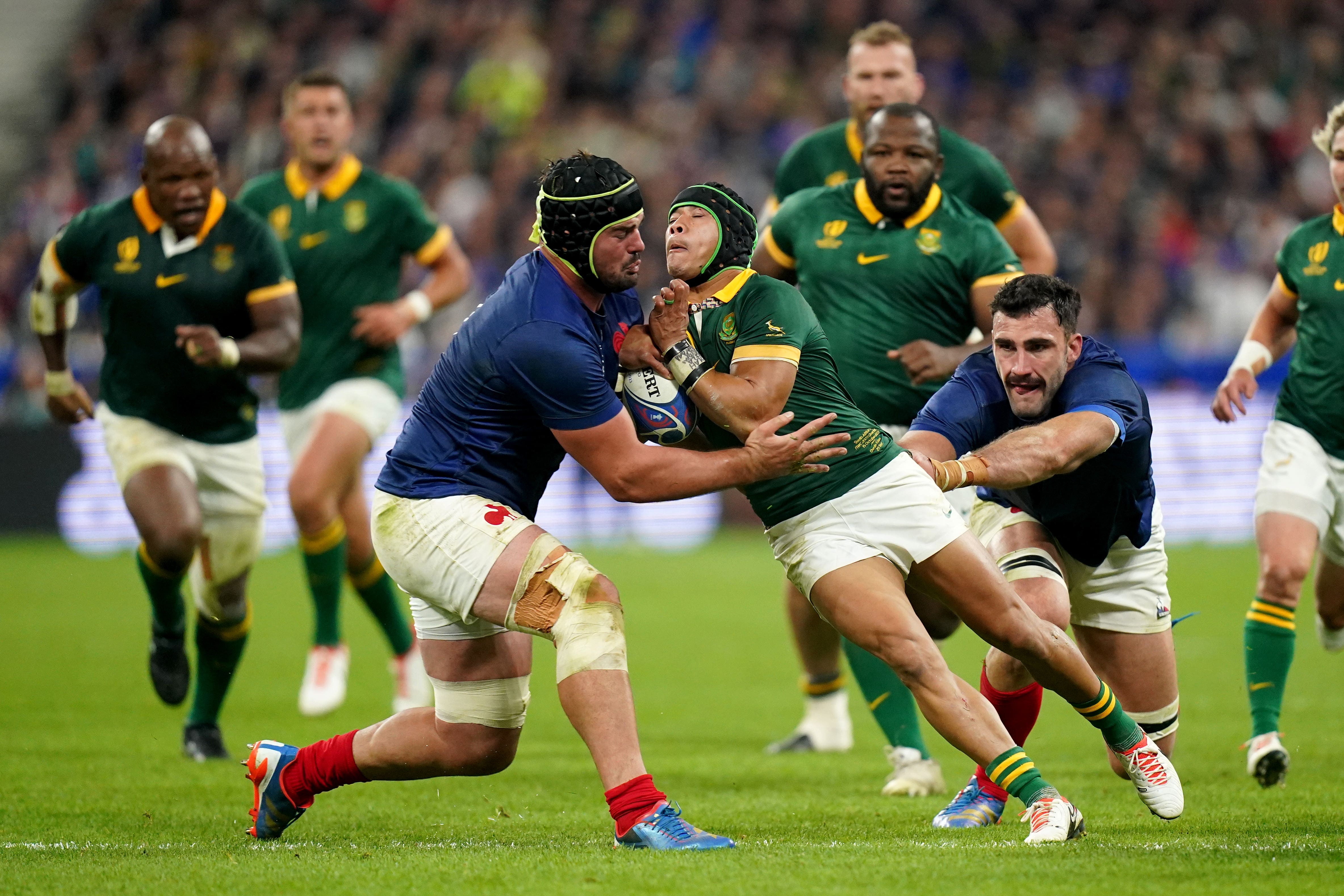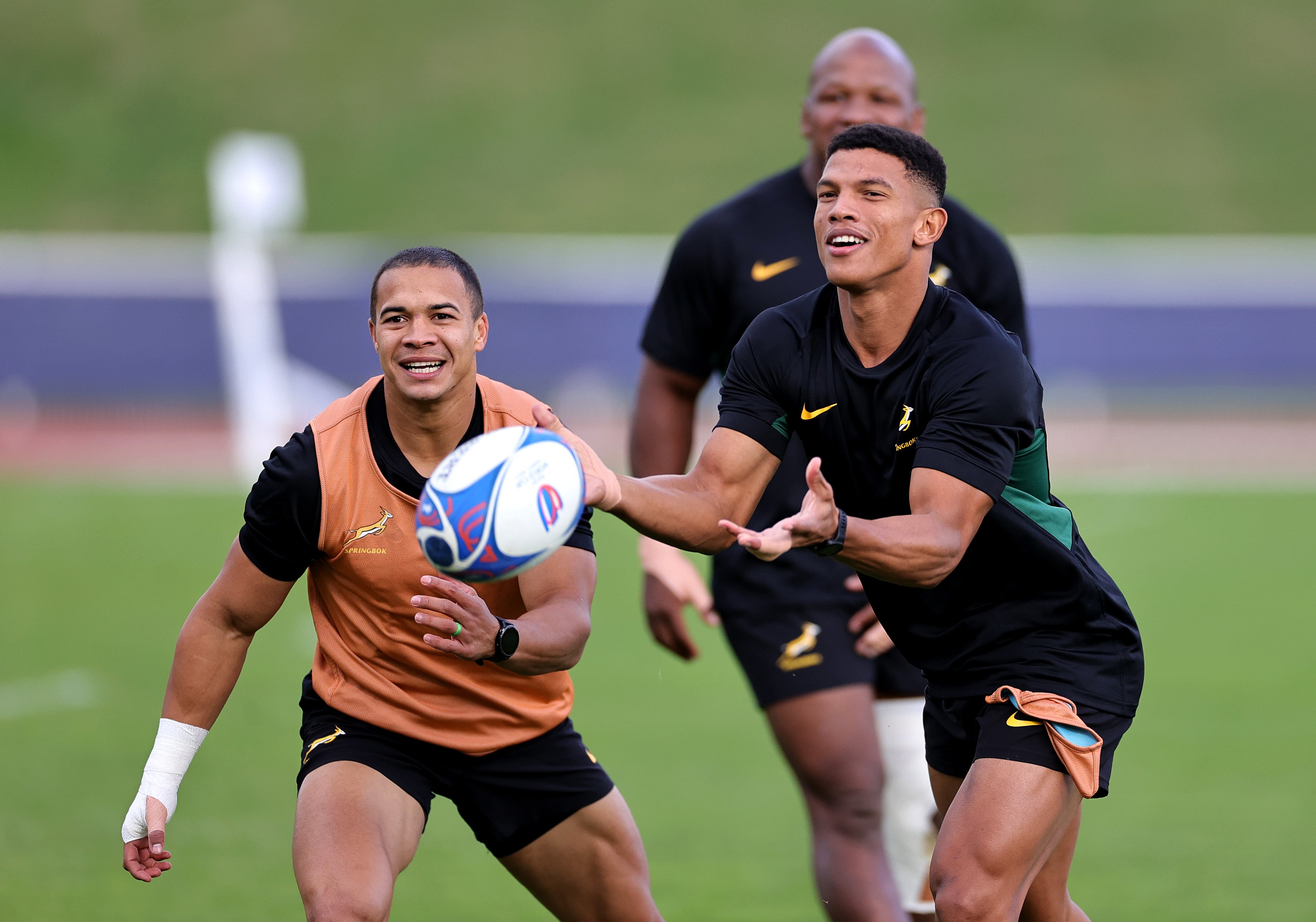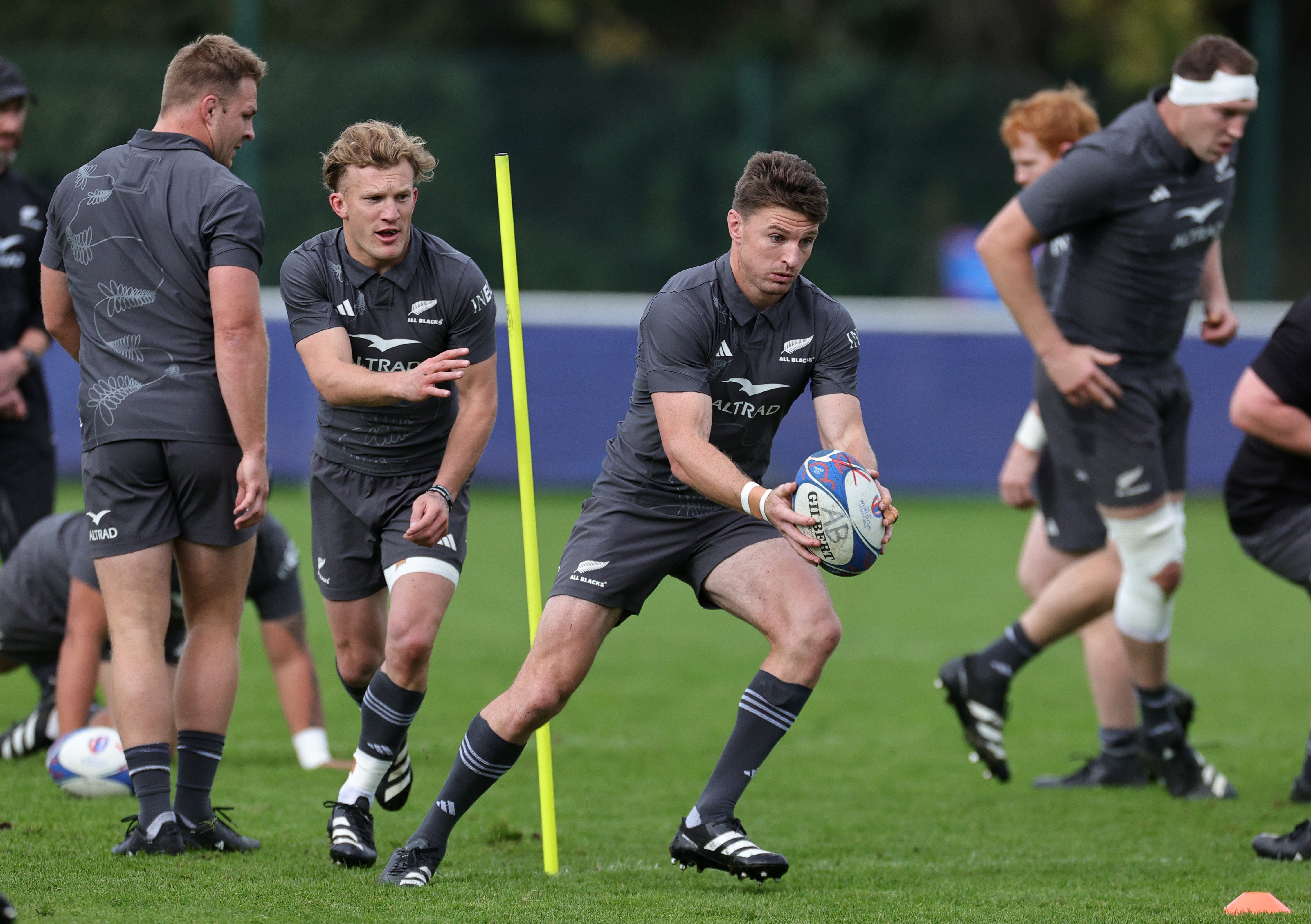Spectacular New Zealand vs South Africa final is just the start of rugby’s exciting ‘new era’
The All Blacks and Springboks can combine to produce sensational rugby, yet, Harry Latham-Coyle argues, the sport is poised for an uncertain future and must capitalise on new opportunities to inject greater revenue for both the domestic and international scene to thrive


Your support helps us to tell the story
From reproductive rights to climate change to Big Tech, The Independent is on the ground when the story is developing. Whether it's investigating the financials of Elon Musk's pro-Trump PAC or producing our latest documentary, 'The A Word', which shines a light on the American women fighting for reproductive rights, we know how important it is to parse out the facts from the messaging.
At such a critical moment in US history, we need reporters on the ground. Your donation allows us to keep sending journalists to speak to both sides of the story.
The Independent is trusted by Americans across the entire political spectrum. And unlike many other quality news outlets, we choose not to lock Americans out of our reporting and analysis with paywalls. We believe quality journalism should be available to everyone, paid for by those who can afford it.
Your support makes all the difference.As any Paris shop owner will tell you, an alluring storefront can be everything. In this beautiful old city, the public are spoilt for choice, chic spots and souvenir shops abundant along the narrow streets and grand boulevards. A bit of glitz and glamour in an attractive aperture can be the difference between a passing glance and a bustling boutique.
And so the Rugby World Cup reaches its day of greatest shop window prominence, hoping to dazzle with a Stade de France showpiece contest between two great rivals. On Saturday, South Africa and New Zealand will battle to lift the Webb Ellis Cup for a record fourth time, the etcher at the ready though unlikely to be able to start their work too soon with two such evenly-matched, if radically different, sides. You could hardly have a more enticing game to sell the sport. The eyes of the world will be watching; this encounter has every chance of enchanting them.
“This is what World Cup finals are about,” Ian Foster, New Zealand’s head coach, said this week. “I don’t think there’s ever a small one.
“The fact is we have two teams who have been old foes for a long time. We all remember the last final between us [in 1995], which was an epic, and hopefully this one will be the same. We’ve got three World Cups each and someone is going to win four. It’s a special occasion, isn’t it?”
A match of such magnitude and potential magnificence comes at the end of a momentous week for rugby union. On Tuesday, World Rugby’s council narrowly gave the go-ahead to grand plans that will reshape international men’s rugby union. From 2026, gone, largely, will be traditional tours, replaced by a two-tiered structure that will provide consistent, meaningful and contextualised rugby for the world’s top 24 nations.
The merits of the plans will be debated but many sensible characters are encouraged by signs of progress. There is a need for more equal sharing of wealth and greater support for emergent unions, though there are at least steps in the right direction even amidst a lack of clarity. Certainly, the implementation of a global calendar should aid in reducing the infighting that has so often held this sport back.
The buoyancy of the rugby television rights market remains to be seen but there is hope at World Rugby, the Six Nations and Sanzaar that the new competition - yet to be officially titled but tagged the “Nations Championship” - will prove an attractive proposition for broadcasters at a time where the sport needs to swell revenue.
It can be forgotten that rugby is young professionally, its economy a frontier market. There is a general acceptance that great missteps were made in the establishment of the structures that have defined the last 28 years, and a more cohesive, collaborative and joined-up approach is required to build sustainably henceforth. If, at times, rugby could be accused of swaying to capitalist whims, this is surely a time for a left-ward shift as it evolves.

“This is a quantum leap forward for the game,” said Bill Beaumont, World Rugby’s chairman, this week. “"It’s fitting that we finish this, the sport’s greatest celebration of togetherness, with the sport’s greatest feat of togetherness, the most significant development in the sport since the game went professional.
"A new era is about to begin for our sport. An era that will bring certainty and opportunity for all. An era that will support the many, not the few and an era that will supercharge the development of the sport beyond its traditional and often self-imposed boundaries.”
The rugby landscape come the next men’s tournament in Australia in four years’ time could look very different. The World Cup itself, meanwhile, is similarly evolving, an expansion to 24 teams and six pools necessitating a new model, with World Rugby considering basing the four sides in each group around a single city. This is the last time that the host nation will take responsibility for the organisation of the tournament, with the sport’s governing body assuming greater control.
It is not beyond the bounds of possibility that the next four years could also see the introduction of a reduced tackle height law to the professional game, with it already in place in recreational rugby in many parts of the world. But there are also concerns over the financial sustainability of the sport, at club level particularly. All of England, Wales, Australia and New Zealand have concerns over what the future holds for their domestic games – this may be a great final, and may have been a great tournament, but it would be wrong to ignore the broader ill health of the sport.

If this is the end of an era, there could be no more fitting way to finish. South Africa and New Zealand have forged a defining rivalry, three World Cup crowns apiece making Saturday’s encounter a chase for number four and the outright men’s record. Their last meeting in a final, that historic day in 1995, ushered in rugby union’s professional age; this game might be the start of another epoch.
If there is a slight disappointment that neither Ireland nor, particularly, France did not make it here given the manner in which they seemed to be building to a quadrennial crescendo, these are the two great men’s rugby sides, whose players and fans embody contrasting but colourful cultures.
On the pitch, it should be spectacular, too. These are two teams that represent the stylistic diversity that so often proves rugby’s strength. To describe it simply as South Africa’s forward might against the All Blacks’ brilliant backs would be to diminish the rounded nature of two fine sides, but there is no doubt that these great rivals approach the game from alternative perspectives.

And, as with any showpiece like this, the storylines are innumerable. Take the men in charge. For South Africa, Rassie Erasmus and Jacques Nienaber, considering every detail like Rodin’s Thinker, could become the most decorated pair in tournament history if they repeat their 2019 victory. For Ian Foster in the opposite coaching box, meanwhile, this triumph would be testament to the tenacity and toughness of a man who so nearly lost his job last year.
Who would begrudge Sam Whitelock, the old warhorse of the All Blacks pack, going out on his shield with a third World Cup winners’ medal? Or what about Siya Kolisi, the boy from a township on the Eastern Cape who became the defining figure of a golden rugby generation, joining Richie McCaw as the only captains to lift the Webb Ellis Cup twice? This could be one of the great rugby days.
"I don’t think it’s stuff that you can dream about because it doesn’t happen often,” said Kolisi ahead of the final. “I don’t think it will happen in our lifetime again to have two teams like this. We’ve prepared as hard as we can. We know what to expect. I don’t think as a player it will ever get any bigger.”




Join our commenting forum
Join thought-provoking conversations, follow other Independent readers and see their replies
Comments